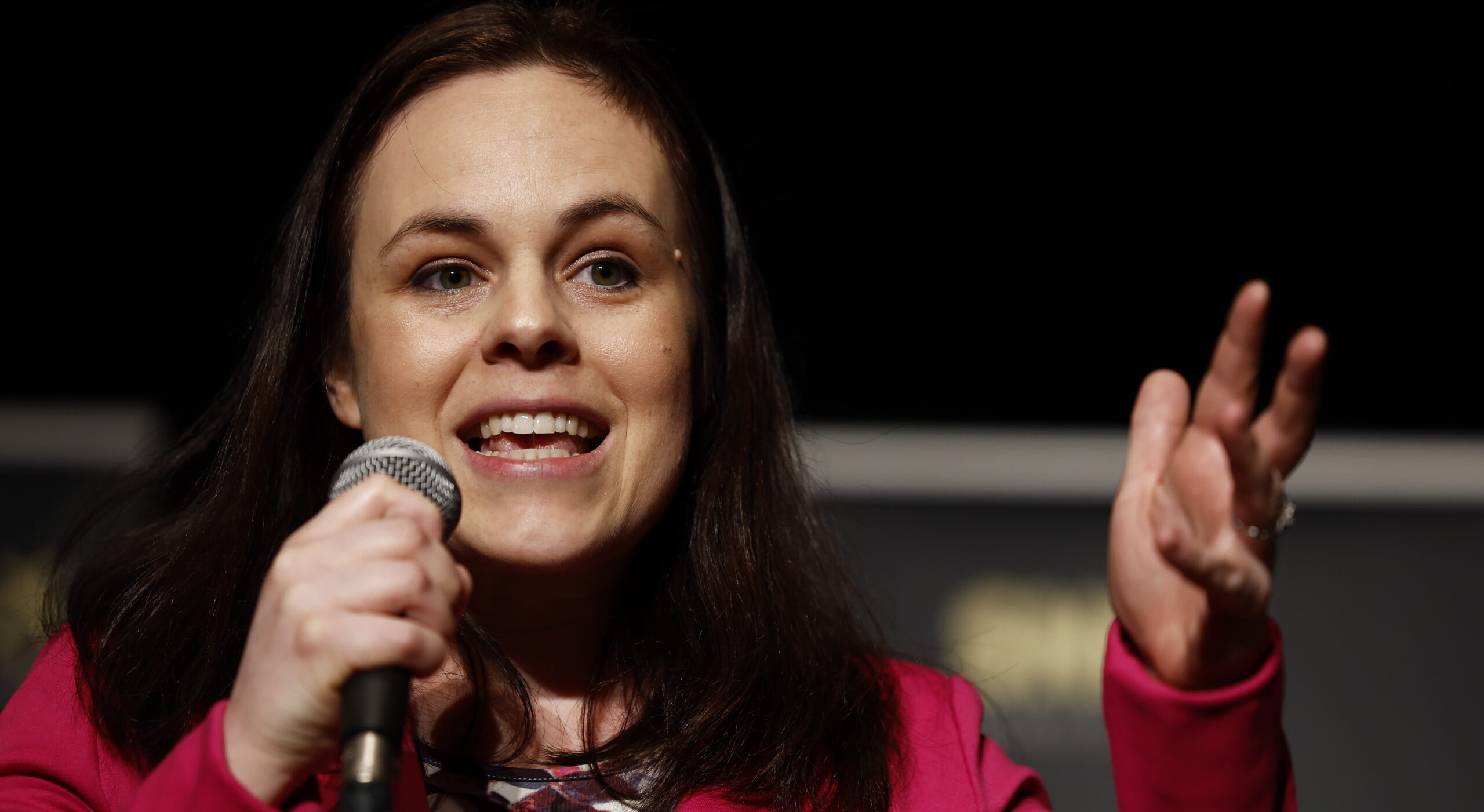“The public is fed up with being scared of saying what is widely accepted as fact,” Kate Forbes, the runner-up in the recent SNP leadership election, said today. Forbes was speaking as part of an online event for the think tank Reform Scotland, titled “No-platforming versus Freedom of Speech”. The panel also featured the SNP MP Joanna Cherry, whose gender-critical views resulted in an Edinburgh Fringe venue de-platforming her at the end of April.
On launching her campaign in February, Forbes was quickly targeted for her attitudes, inspired by her faith, towards same-sex marriage and gender self-identification. Speaking today, the former finance secretary claimed, “I should be subject to scrutiny, but you can’t have scrutiny if you use different tactics to shut down somebody.” She went on, “It is not about disputing someone’s views: it’s about boycotts and sacking people from jobs.”
SNP members attempted in February to have Forbes investigated for “transphobia”, while several media outlets campaigned for her to be removed from the leadership ballot. However, while a number of backers deserted Forbes when her views were made public, she also received significant support, and finished with 48% of the final vote in the run-off with eventual winner Humza Yousaf.
“I was amazed and heartened by the backlash to the backlash. I received support from people who disagree with me on every single front,” Forbes said at the Reform Scotland event, continuing, “Defending scrutiny means defending freedom of speech [but] you can’t scrutinise that which will not be heard.” Discussing the censorious climate which extends beyond frontline politics and into the realms of education and the arts, she argued that “this culture of fear will eventually stymie art, comedy, and journalism.”
Cherry, who this week threatened legal action over her cancelled appearance at The Stand comedy club in August this year, concurred, saying that “universities, workplaces and political parties have all been captured”. The free speech problem is particularly pertinent when considering LGBT issues, the MP claimed, and stems “from organisations like Stonewall, which are taking the approach of ‘no debate’”.
When she was asked how she would have handled the crisis which engulfed the SNP after Nicola Sturgeon’s attempts to pass the controversial Gender Recognition Reform (GRR) Bill, Forbes highlighted the need for unity across ideological lines. “There’s nearly always less that divides us than we think,” she said, “There was a way forward, but it had to start with one side listening to the other, and finding the points on which they agreed.”
Just as Forbes was subjected to abuse for her attitudes to LGBT rights, opponents of the GRR Bill were tarred as misogynist, transphobic and racist — and that was just from the then-First Minister. “The treatment of those who expressed concerns was absolutely unacceptable, so there was no hope of building a bridge that we could have built at the beginning,” Forbes said today. Intriguingly, she extended this principle to another issue which has dominated political discourse in Scotland in recent years: “I think, for example, that there is more that unites Yes and No voters than we think.”











Join the discussion
Join like minded readers that support our journalism by becoming a paid subscriber
To join the discussion in the comments, become a paid subscriber.
Join like minded readers that support our journalism, read unlimited articles and enjoy other subscriber-only benefits.
Subscribe